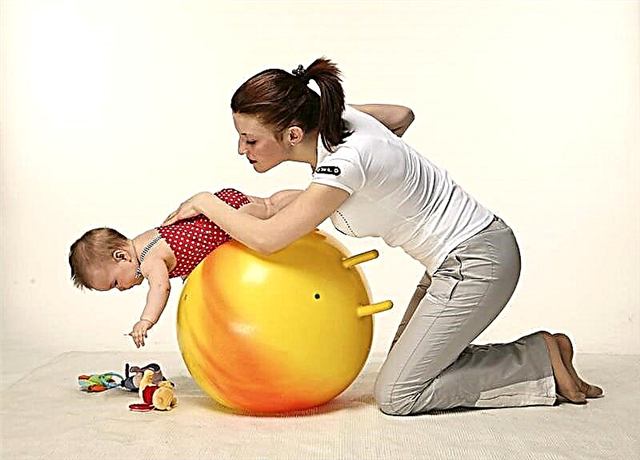
In medicine, there is no description of the mandatory symptoms and signs of ovulation. It is believed that the average woman cannot feel the moment a mature egg leaves the follicle, and therefore doctors call any changes in a woman's well-being during the ovulatory process subjective. One of these subjective signs, along with pain in the lower abdomen and dizziness, is bloating. Why this is happening and what to wish for with it, this article will tell.
Causes of the phenomenon
Bloating during ovulation can hardly be called a sign that, in one way or another, indicates the presence of ovulation itself, and therefore it is definitely not worth determining a period favorable for conception for bloating, as some women advise on thematic forums on the Internet. If the belly is swollen, this does not mean that the woman has ovulated at all or will occur in the coming days.
Ovulation is a cellular, microscopic process, the size of the germ cell that leaves the follicle is very small, and therefore it is definitely not worth talking about increased gas production for this reason. But the whole process of ovulation is invariably and without fail regulated by hormones, which theoretically can influence the process of accumulation of gases in the intestines.
During the first half of the menstrual cycle, follicles located on the surface of the ovaries ripen under the influence of follicle-stimulating hormone (FSH). At first there are several of them, but then one dominant remains (in rare cases - two), and the development of the rest is slowed down and postponed until better times (the woman's ovarian reserve is not replenished, it is limited).


1-2 days before ovulation in a woman's body, the level of estrogen rises sharply, which gives a "push" to raise the level of luteinizing hormone (known as LH). Under the influence of the peak of LH, the follicle membranes become thinner and burst, releasing the egg. This is ovulation. After the release of the egg, the level of progesterone begins to increase sharply, which is produced by the corpus luteum formed at the site of the ruptured follicle.
Now that we have a better understanding of the process, let's talk about the possible causes of bloating.
- Hormonal drop - it is he who makes ovulation possible, but any hormones, and especially sex hormones, often cause disruption of the digestive tract - the smooth muscles of the intestine relax, flatulence is increased, gas evacuation, on the contrary, is difficult. Usually, the main reason is the decrease in estrogen that occurs immediately at the time of ovulation.
- The action of progesterone - this hormone, which comes into its own immediately after the release of the oocyte, must be said separately. It deliberately relaxes the smooth muscles of the uterus to facilitate the task of the ovum to attach in the cavity of the genital female organ. But receptors of other organs with smooth muscles are also sensitive to this hormone. For this reason, some women have gas and bloating (relaxed bowels) during ovulation, as well as nausea and headaches (due to relaxation of the esophagus and stomach, as well as spasm of the cerebral vessels).
- Consequences of the follicle rupture process - there is a certain amount of fluid inside the follicle, which is a nutrient medium for a maturing oocyte. Also, the follicle has its own network of blood vessels feeding it. When the membrane of the bubble ruptures, this fluid and a small part of the blood from the injured small vessels are poured into the abdominal cavity. This causes local irritation and inflammation of the peritoneum, which can also be perceived by a woman as bloating, while intestinal gases as such do not accumulate in the intestines, it turns out that the sensation is very subjective and even false.
- Nutritional errors - Eating a large amount of cabbage, legumes, yeast baked goods, kvass, grapes, fermented milk products and products with an expired shelf life can be an independent cause of bloating, not directly related to the day of ovulation. Just bloating in this case may coincide with the middle of the menstrual cycle, which will be perceived by the woman as a relationship.


Is it a disease?
If a woman thinks that her ovulation is accompanied by bloating, no one will dissuade her. Moreover, this is not necessary at all: a slight disturbance of flatulence during the period of a sharp change in the hormonal background is a normal phenomenon, physiologically justified, and does not require therapy. Another question is the individual characteristics of the autonomic nervous system, which is responsible for the smooth muscles of all internal organs.
If the hormonal drop inherent in ovulation and the subsequent growth of progesterone have a too pronounced effect on the woman's body, it is usually not limited to swelling, the rapid development of stool stagnation, the formation of constipation with all the ensuing unpleasant sensations and possible consequences (exacerbation of hemorrhoids, for example , the appearance of anal fissures, etc.).
If the accumulation of gases in the intestines is significant, then women experience not only distension in the abdomen, but also symptoms of general intoxication - they feel sick, have a headache, want to sleep, and fatigue increases.
Normally, physiological bloating after ovulation disappears within 1-2 days. If the symptoms persist and worsen, be sure to inform your doctor about this.

What to do?
If you have a personality trait like bloating during ovulation, following a healthy diet in the middle of your menstrual cycle can help reduce discomfort. Of course, you need to eat right on any day, but during the peak fertility period, pay special attention to this. Eliminate beans, peas, rye bread, yeast baked goods, beer and kvass, white cabbage. Avoid carbonated drinks, sweets and chocolate, ensure yourself a normal level of physical activity (if you are active, your intestines are also more active).
If you cannot cope with increased gas production and a feeling of fullness in the abdomen by one correction of nutrition and lifestyle, turn to traditional medicine. You can make yourself a tea with chamomile flowers, which has some carminative and anti-inflammatory effects. It is advisable to start drinking such tea a few days before ovulation. If constipation often occurs in the second phase of the cycle under the influence of progesterone, then chamomile tea should be continued after ovulation until the onset of menstruation, if there is no reason to assume pregnancy.
Doctors may recommend simethicone-based remedies to help normalize bowel function - they help remove gases faster. Even if conception has occurred, such funds for the expectant mother and baby are not dangerous. Additionally, you can start taking B vitamins, as well as magnesium preparations.


If the situation is not limited to one bloating, constipation has developed, mild laxatives such as castor oil, glycerin suppositories or a cleansing enema will help. For constipation, which repeats from cycle to cycle more than once, you should definitely consult a doctor who will prescribe treatment and tell you about preventive measures to prevent stagnation of feces.
Important! Do not take pain relievers during ovulation if you are planning a pregnancy. They do not help from bloating, they only muffle the sensations, but they affect the quality of ovulatory processes, and this influence is negative.
Be sure to pay attention to the psychological and emotional state. Excessive stress can be the cause of bloating. Usually this is observed in women who have long been planning to conceive a child, but cannot achieve their goal in any way. Every time when ovulation approaches, they worry, worry, torment themselves with assumptions, do tests and, in general, the issue of ovulation is painful for them. In this case, a psychosomatic disorder of flatulence develops.
A psychologist, psychotherapist can help a woman, which will teach her to relate more easily to planning pregnancy, which at the same time will increase the likelihood of conception, since getting rid of stress normalizes the production and balance of sex hormones.
An informative video about the processes occurring during the menstrual cycle is presented below.



